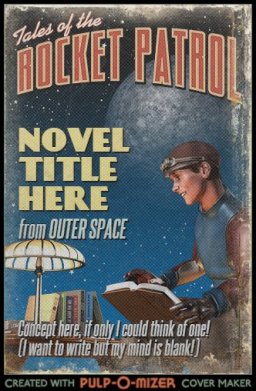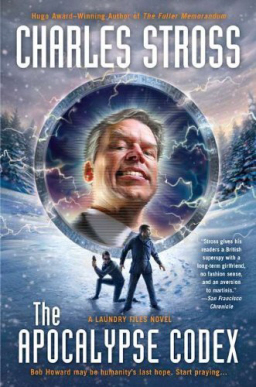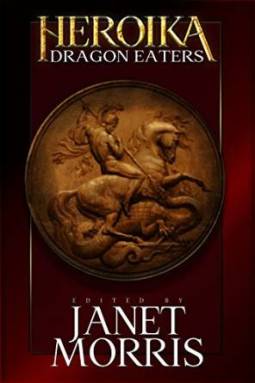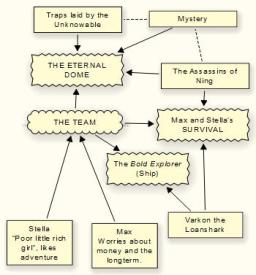“Help! I Want to Write a Novel But Don’t Have Any Ideas!!!”

“How do I come up with an Idea for writing a novel?” comes up sooooo very often on the writing forums that… well, that I am writing this.
On the face of it, the question sounds silly; how can you aspire to write if you don’t have any ideas?
Actually, the questioner usually does have ideas. However, they are (1) expecting a Novel Idea to stand out because it has a choir of angels flying around it singing Vode An or (2) sense that their ideas are too vague to lend themselves to story building.
However, let’s assume the rare case #3, that the wannabe writer’s mind is actually blank. They love the idea of telling a story, think they would enjoy the process, but can’t think of what to write about.
Their problem, then, is how to Be Creative.
There are, of courses, lots of workshops on freeing your creativity. You can also buy all sorts of self help books. Most of them come down to, Stop Self Editing/ Switch off your internal editor.
There is truth in this. The book The Midnight Disease shows that there really is both an Internal Editor and an Internal Mad-as-a-Hatter-Creative. The idea is that you tell the Editor to shut up and just let the Creative splurge out whatever falls out of your brain. Only once you have a whiteboard/notebook/screen full of jottings do you unmuzzle the Editor and pick the ideas that have legs.
In this model of creativity, only this filtering process is what distinguishes professional creatives from people… well, in need of a different sort of professional help.
I think, however, that this is an exaggeration and also an overemphasis on arm waving muse-wrangling.
What actually distinguishes the professional creatives I know personally is that their heads contain some interesting ideas. Specifically, they are well informed about the facts related to their particular genre and “voice”.
Take Charles Stross, for example.

Go skim his blog and you’ll find he knows about — well, lots of things but specifically — Computing, Bureaucracy, Cthulhu Mythos, Game Theory, Astrophysics, Economics, History… Some comes from life experience — his or people he’s talked to – some from books. Some of it is obscure, all of it is cool, but none of it is original because otherwise it wouldn’t be knowledge.
So…
STEP ONE: Fill your head with interesting knowledge.
The chunks of knowledge don’t even have to be directly related, in fact — we’ll see — it’s better if some of them are not.
Hang on, you’re asking, What happened to the creativity? Where’s my angst?
Well gaining knowledge is a creative thing. It means seeking out experiences that are cool. Reading books that inspire you. Or just contemplating your life as it is.
So then when you come to the Great Brainstorming, you’re really just capturing “What excites me at the moment?” That gives us…
STEP TWO: Ask yourself for several things that excite you at the moment and jot them down.
Note I’m not saying “Write down a hundred novel ideas”. I doubt that works for many people.Here’s why:
Stories are 4-dimensional things — they have a time dimension. Ideas tend to be 3-dimensional snapshots. Even characters that pop into our heads arrive at a certain point in their lives. We imagine a raw recruit or a veteran soldier, but not the transition from one to the other; that sort of imagining is a different kind of task.
So what excites me at the moment? triggers a tide of things, of entities — Ideas, philosophies, incidents from history, systems, phenomena, tropes – all static, even if they are itching to roll west, guns blazing.
None of them stories.

The people I mentioned at the start, the ones with ideas who don’t think thy have ideas; usually they’ve got this far by accident.
Now at last we come to the really creative bit.
Humans are not so good at creating in a vacuum. However, we’re really really good at making connections between things. It’s a feature when out hunting with a flint spear — Ug find human carcass and birds not make noise! Ug beware Sabretooth! It’s often a bug in the modern world where we easily fool ourselves — Man wear good suit. Man must be successful. Therefore buy $100000 shares from man.
So the next part of the process is:
STEP THREE: Jumble up all the bits of knowledge and see if you can come up with reasons why some of them might fit together.

Seriously, if you jotted down – say – dragons, electric guitar, democracy, knitting, mountains, Andromeda Galaxy… you can fit at least three of those together, say;
Guitar playing astronaut visits the Andromeda Galaxy where she encounters a real dragon.”
I did something similar for my Heroika Dragon Eaters short — dragons, zeppelins, feminism, firearms, skeletons, zombies, flying city, Modernity…
However, you still don’t have a Novel Idea because you still don’t have any conflict!
STEP FOUR: Identify the main conflicts.
Who/what is struggling with what/whom?
OK that probably takes a little practice!
Several chapters of my writing book cover this, however, you can get a good idea of the approach that works for me from an earlier Black Gate blog post.
So now, if you have followed these four steps, you should have a vaguely viable novel idea.
All that’s left is the trivial task of sitting down and writing it…
M Harold Page (www.mharoldpage.com) writes stories with tropes in them. You can buy his action-packed Dark Age adventure, Shieldwall: Barbarians! (UK, Epub) and also learn how to plan and write your novels using his Storyteller Tools: Outline from vision to finished novel without losing the magic (UK, Epub)